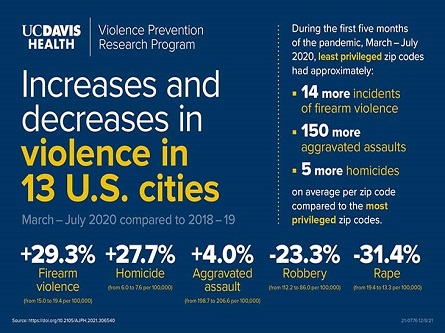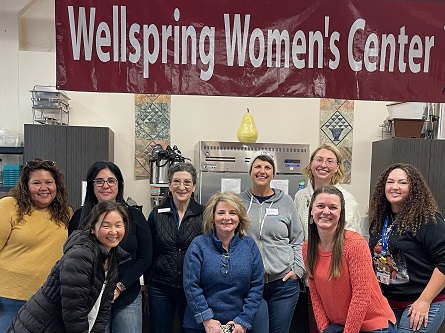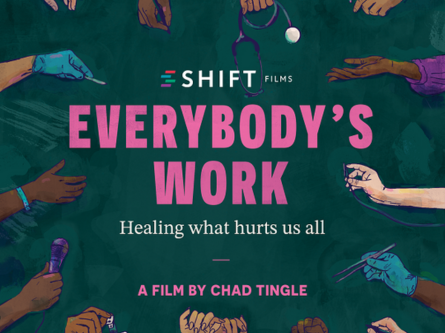By Vicka Chaplin (she/her/hers), MA, MPH
Director of Education and Outreach
Violence and Prevention Research Program
California Firearm Violence Research Center
UC Davis Health
Fifteen years ago, the United Nations General Assembly established the International Day of Non-Violence to "disseminate the message of non-violence...through education and public awareness...and reaffirm the desire for a culture of peace, tolerance, understanding and non-violence."
The U.N. selected October 2nd, Mahatma Gandhi’s birthday, for the annual observance. Known as the leader of the Indian independence movement and founder of the modern non-violence movement, Gandhi has served as an inspiration for generations of civil rights activists and social change makers, advancing non-violent resistance and rejecting the use of physical violence to achieve social or political change. While we celebrate his life and principles, we mourn his premature death by a too-familiar cause: Gandhi was assassinated—shot—in 1948.
In the United States, we are confronted by the devastation of violence, especially with firearms, every day. According to the CDC, the 2020 firearm homicide rate was a 35% increase over the year prior and the highest rate since 1994. Disparities by race, ethnicity, and poverty level continue to increase, as exemplified in the early months of the COVID-19 pandemic, when low-income communities of color suffered significantly greater increases in violence than affluent, white neighborhoods.
A new threat of political violence is also emerging: worsening trends in violence are converging with historically high gun purchasing and increasing political extremism, and political violence experts are sounding the alarms.
The UC Davis Violence Prevention Research Program (VPRP) is a multi-disciplinary program of research and policy development focused on the causes, consequences, and prevention of violence. We are particularly focused on firearm violence and house the California Firearm Violence Research Center, the first state-funded center for firearm violence research. We helped to develop the public health approach to violence in the 1980s and we still apply it to everything we do.
Addressing American gun violence and its disproportionate harms to our most vulnerable and disenfranchised communities is imperative. Our research demonstrates that a safer, healthier, and more equitable future is possible through strategic investment in historically marginalized communities, evidence-based policy, and community-driven violence prevention initiatives.
Changing course before political violence becomes a more dominant feature of American life is similarly urgent. Through our newest area of study, we are developing a greater understanding of contemporary political violence risks. Our colleagues in political violence prevention offer clear strategies to support democracy. Again, a safer future is possible – and we must act now.
This International Day of Non-Violence, we at VPRP invite you to join us and make or renew your personal commitment to building a safer and more just society. Our faculty and staff conduct research that informs policy and programs that in turn enhance safety, heal communities, fortify democracy, and reduce risk of violence, but that’s not enough. All of us must commit to non-violence in our personal and political lives. While the climb ahead is steep, Gandhi’s vision of non-violence gives us guidance for principled action to get us there together.





